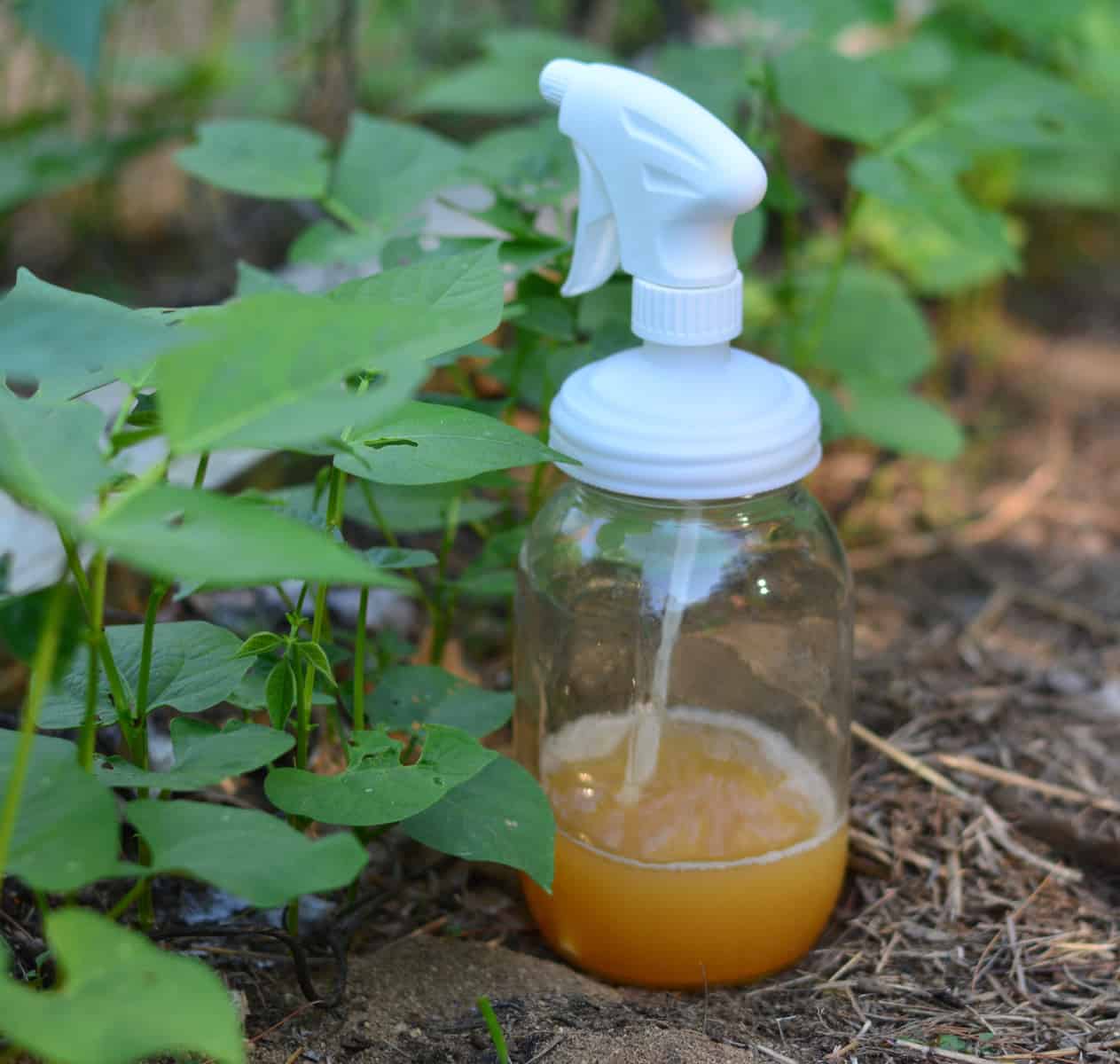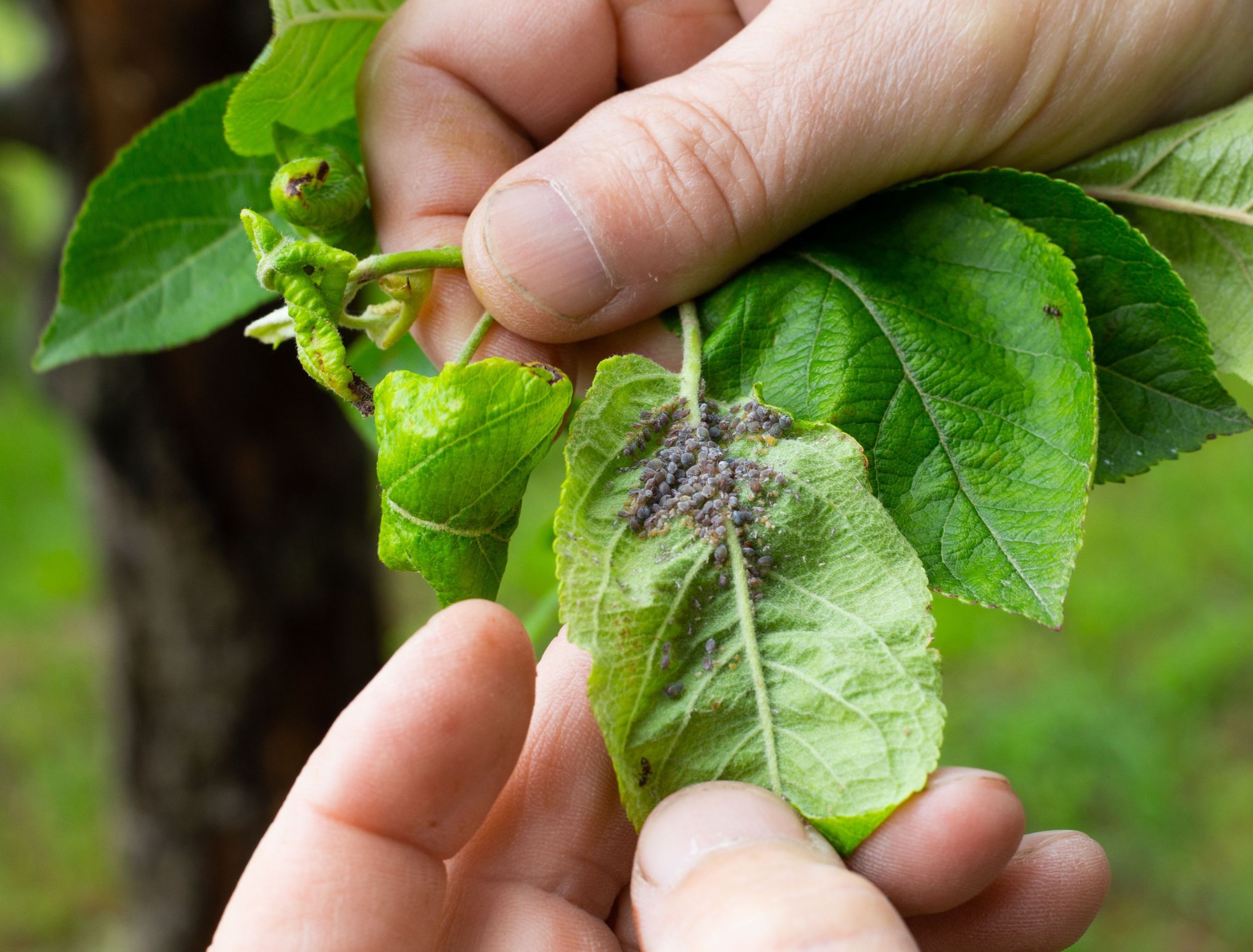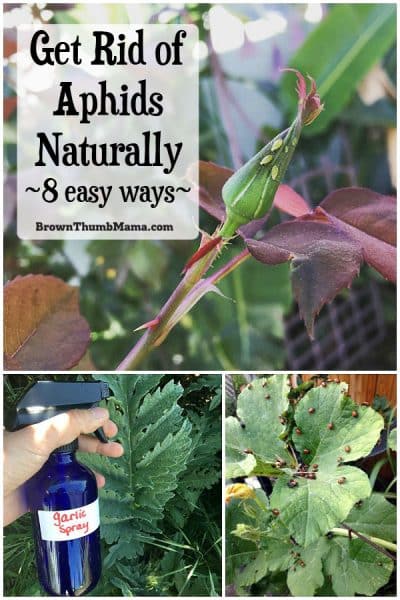What is a Natural Pesticide for Aphids? Discover Effective Solutions for Your Garden

Aphids are notorious pests that can wreak havoc on your garden, sucking the sap from plants and weakening their health. While chemical pesticides can provide a quick fix, many gardeners seek natural alternatives that are safer for the environment and beneficial insects. Understanding what constitutes a natural pesticide for aphids is essential for promoting a healthy garden ecosystem. In this article, we will explore a variety of effective solutions, from homemade remedies to botanical options, that can help you combat aphid infestations without compromising the integrity of your garden or harming other vital organisms.
What is a Natural Pesticide for Aphids?
Natural pesticides for aphids are eco-friendly alternatives to synthetic chemicals, designed to combat these common garden pests without harming beneficial insects or the environment. One popular option is the use of neem oil, which is derived from the seeds of the neem tree. This natural pesticide disrupts the aphids’ hormonal systems, preventing them from feeding and reproducing effectively. Other effective natural solutions include insecticidal soaps and garlic sprays, which deter aphids through their strong scents and properties that may suffocate the pests. Additionally, introducing beneficial insects, such as ladybugs, can help maintain aphid populations naturally while promoting a balanced ecosystem. These methods not only target aphids but also help in preserving the overall health of the garden.
Neem Oil as a Natural Pesticide
Neem oil is a powerful natural pesticide obtained from the seeds of the neem tree. It works by disrupting the life cycle of aphids through contact and ingestion, leading to reduced feeding and eventual elimination. When applied to plants, neem oil's active ingredients interfere with the aphids' growth hormones, making it harder for them to mature and reproduce. Additionally, neem oil does not harm beneficial insects when used correctly, making it a safe choice for organic gardening.
Insecticidal Soaps
Insecticidal soaps are another effective natural solution for controlling aphid populations. These soaps contain natural fats and oils that dissolve the outer waxy coating of aphids, leading to their dehydration and death. When applied directly to the affected plants, insecticidal soaps kill aphids on contact. They are safe to use on most plants and have low toxicity to humans and pets, but it is essential to follow the manufacturer's instructions for proper application.
Garlic Spray for Deterrence
Garlic spray is a simple yet effective natural pesticide that can deter aphids due to its strong odor. When garlic is crushed and mixed with water, it creates a potent solution that can be sprayed on plants. The pungent smell masks the scents that attract aphids and may repel them from feeding. Additionally, garlic has been shown to have antifungal properties, providing extra protection for plants against other potential pests and diseases.
Encouraging Beneficial Insects
Introducing beneficial insects, like ladybugs, lacewings, and parasitic wasps, can greatly reduce aphid populations in gardens. These natural predators feed on aphids, keeping their numbers in check without the need for chemical pesticides. Creating a hospitable environment for these insects by planting a diverse range of flowers, providing shelter, and avoiding chemical treatments can lead to a healthier ecosystem and more sustainable aphid control.
Companion Planting as a Strategy
Companion planting involves growing certain plants together to enhance growth, deter pests, and attract beneficial insects. Some plants, such as marigolds, can repel aphids and other harmful insects, while others serve to attract natural predators. By strategically choosing companion plants, gardeners can create a natural defense system that reduces aphid infestations and promotes a healthy garden environment.
| Natural Pesticide | Method of Action | Targeted Pest |
|---|---|---|
| Neem Oil | Disrupts growth hormones | Aphids |
| Insecticidal Soaps | Dissolves outer coating | Aphids |
| Garlic Spray | Repels through strong odor | Aphids |
| Beneficial Insects | Predation on aphids | Aphids |
| Companion Planting | Deters pests and attracts predators | Aphids |
What is the best homemade aphid killer?

The best homemade aphid killer is often a simple mixture of everyday household ingredients that effectively targets the pests without harming beneficial insects. Here’s a detailed look at various recipes that can help eliminate aphids safely.
Soap and Water Solution
A soap and water solution is one of the most popular homemade remedies for aphids. The soap works by suffocating the insects, disrupting their cell membranes, and ultimately leading to their demise.
See also:
- Mix 1-2 tablespoons of liquid dish soap with a quart of water.
- Transfer the mixture into a spray bottle for easy application.
- Spray directly onto the infested plants, ensuring to cover the undersides of the leaves.
Neem Oil Spray
Neem oil is another effective option, derived from the seeds of the neem tree. It disrupts the life cycle of aphids and helps to repel them.
- Dilute 1-2 tablespoons of neem oil in a quart of warm water.
- Add a few drops of dish soap to help emulsify the mixture.
- Spray on affected plants, repeating every week until aphid populations decrease.
Garlic Spray
A garlic spray harnesses the insect-repelling properties of garlic to deter aphids. Its strong odor masks the scents that attract these pests.
- Crush several cloves of fresh garlic and steep them in water overnight.
- Strain the solution and dilute with more water if desired.
- Spray on plants vulnerable to aphid infestations.
Hot Pepper Spray
Utilizing the heat from hot peppers, this spray creates an inhospitable environment for aphids. It targets their feeding and can also deter other pests.
- Blend 1-2 hot peppers (like cayenne) with a quart of water.
- Strain the mixture to remove solid particles.
- Add a few drops of liquid soap and spray on the affected plants.
Alcohol Spray
An alcohol spray can be highly effective in eliminating aphids on contact. Rubbing alcohol disrupts their outer layer, which leads to dehydration.
- Mix one part rubbing alcohol with three parts water.
- Transfer the solution to a spray bottle.
- Spray directly onto the aphids for immediate results, making sure to reapply after rain.
Does vinegar kill aphids naturally?

Vinegar, specifically white distilled vinegar, is often suggested as a natural remedy for controlling aphid populations due to its acidic properties. The acidity of vinegar can be effective in suffocating aphids, which are small sap-sucking insects that can cause significant damage to plants if left untreated. However, it is important to understand the effectiveness and potential consequences of using vinegar in your garden.
Understanding Aphids and Their Impact on Plants
Aphids are notorious pests that can rapidly reproduce and infest plants. They feed on plant sap, leading to weakened plants and the potential spread of viral diseases. Their presence can also attract secondary pests like ants. Understanding the life cycle and behavior of aphids is crucial for effective management.
- Aphids reproduce quickly, with females giving birth to live young.
- They can create large colonies on a single plant.
- They weaken plants by sucking sap and can transmit diseases.
How Vinegar Affects Aphids
Vinegar, being an acidic liquid, affects aphids primarily through contact. The acidity can disrupt their exoskeletons and, as a result, lead to drying out and suffocation. However, vinegar is not a systemic treatment and typically requires direct application to be effective.
- The high acidity can damage the aphid’s exoskeleton.
- Direct contact is necessary for effectiveness.
- It may not kill all aphids on contact; repeat applications may be necessary.
How to Use Vinegar as an Aphid Treatment
To use vinegar effectively against aphids, you can create a solution by mixing equal parts of water and vinegar. It's crucial to test this solution on a small area of the plant first to ensure that it doesn't cause harm to the foliage. Apply during the cooler part of the day to avoid leaf burn.
- Mix equal parts of water and white vinegar.
- Perform a patch test on a small plant area.
- Spray directly onto aphids during the cooler hours.
Potential Risks of Using Vinegar on Plants
While vinegar can be effective against aphids, its use may pose risks to your plants. The acidity can harm not only pests but also beneficial insects and the plants themselves if not used correctly. Therefore, caution is advised.
See also:
- Vinegar can damage plant leaves if used in high concentrations.
- Beneficial insects, such as ladybugs, may also be affected.
- Overuse can lead to soil acidification, impacting plant health.
Alternative Natural Remedies for Aphid Control
In addition to vinegar, several other natural remedies can help control aphid populations without the risks associated with vinegar. These alternatives can be gentler on plants and beneficial insects.
- Introduce beneficial predators like ladybugs or lacewings.
- Use insecticidal soap specifically designed for pest control.
- Try neem oil, which disrupts the life cycle of aphids without harming beneficial insects.
How to get rid of aphids without using pesticides?

To get rid of aphids without using pesticides, there are several natural methods you can implement. Aphids are small sap-sucking insects that can cause significant damage to plants by weakening them and transmitting diseases. Here are some effective strategies to control aphids organically.
Identify the Infestation
Recognizing a aphid infestation is the first step in managing the problem. Look for the following signs:
- Visible Aphids: Check the undersides of leaves and the stems of plants for clusters of small, green, black, or yellow insects.
- Sticky Residue: Honeydew, a sticky substance secreted by aphids, often leads to the growth of sooty mold, another sign of their presence.
- Wilting or Distorted Growth: Plants may appear stunted or have curled leaves, indicating aphid feeding.
Introduce Beneficial Insects
Utilizing beneficial insects is a natural way to control aphid populations. Certain insects can be effective predators of aphids:
- Lacewings: Their larvae consume a large number of aphids throughout their lifecycle.
- Ladybugs: Both larvae and adult ladybugs are voracious aphid eaters and can significantly reduce their numbers.
- Parasitic Wasps: These tiny wasps lay eggs inside aphids, ultimately killing them and helping control their population.
Use Natural Sprays
Applying natural homemade sprays can deter aphids effectively. Here are some popular recipes:
- Soap Spray: A mixture of water and mild liquid soap can suffocate aphids. Use one to two tablespoons of soap diluted in a quart of water.
- Neem Oil: Extracted from the neem tree, this oil disrupts aphid reproduction and feeding when sprayed on infested plants.
- Garlic Spray: Blend garlic with water and strain it. This pungent mixture can repel aphids when sprayed on plants.
Encourage Companion Planting
Certain plants can naturally deter aphids when planted alongside more susceptible crops. Some effective companion plants include:
- Marigolds: Their scent repels aphids and attracts beneficial insects that prey on them.
- Chives: The strong aroma of chives deters aphids and can enhance the health of nearby plants.
- Nasturtiums: These plants can act as a trap crop, attracting aphids away from your valuable plants.
Maintain Healthy Plants
Healthy plants are less susceptible to aphid infestations. Implementing proper care techniques can enhance plant vigor:
- Regular Watering: Ensure plants receive adequate moisture without overwatering, as stress can attract aphids.
- Fertilization: Use organic fertilizers to promote overall plant health, which can improve their resistance to pests.
- Pruning: Remove infested leaves and stems promptly to prevent the spread of aphids and encourage air circulation.
Questions from Our Readers
What is a natural pesticide for aphids?
Natural pesticides for aphids include a variety of plant-based solutions, such as neem oil and insecticidal soap. These products work by disrupting the aphids’ feeding and reproduction processes, ultimately helping to reduce their population without harming beneficial insects.
How does neem oil work against aphids?
Neem oil acts as a natural pesticide by disrupting the hormones of aphids, which can prevent them from feeding, growing, and reproducing. When applied to affected plants, it coats the aphids and interferes with their normal behavior, making them less likely to thrive.
See also:
Can I use homemade remedies for aphids?
Yes, several homemade remedies can be effective against aphids, such as a mixture of water and dish soap or a spray made from garlic or hot pepper. These solutions can deter aphids by creating an environment that is less hospitable for them to thrive.
Are there any companion plants that help control aphids?
Yes, certain companion plants can help deter aphids. For example, plants like marigolds, basil, and chives can produce scents or compounds that repel aphids while attracting their natural predators, making them excellent choices for companion planting.

If you want to read more articles like What is a Natural Pesticide for Aphids? Discover Effective Solutions for Your Garden, we recommend you check out our Insects category.
Leave a Reply
Related Articles